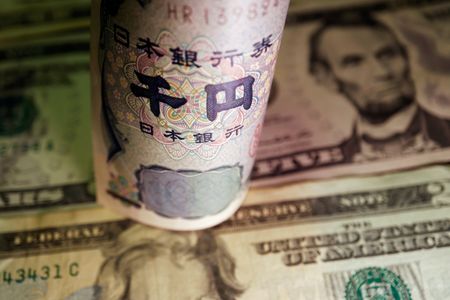By Colleen Howe
BEIJING (Reuters) -Oil prices softened on Wednesday but held onto most of their gains from the previous session amid expectations that an end to the longest-ever U.S. government shutdown could boost demand in the world’s biggest crude-consuming nation.
Brent crude futures slipped 22 cents, or 0.34%, to $64.94 a barrel by 0625 GMT after gaining 1.7% on Tuesday. U.S. West Texas Intermediate crude was down 22 cents, or 0.36%, to $60.83 a barrel, after climbing 1.5% in the previous session.
The U.S. Republican-controlled House of Representatives is set to vote on Wednesday afternoon on a bill, already signed off by the Senate, that would restore funding to government agencies through January 30.
A government reopening would boost consumer confidence and economic activity, spurring demand for crude oil, IG market analyst Tony Sycamore wrote in a note.
An end to the U.S. government shutdown, which has disrupted tens of thousands of flights in the last few days alone, could also lead to a rebound in travel and jet fuel consumption ahead of the upcoming holiday season.
The International Energy Agency forecast in its annual World Energy Outlook on Wednesday that oil and gas demand could continue to grow until 2050.
The forecast was a departure from the IEA’s previous expectation that global oil demand would peak this decade, as the international body moved away from a forecasting method based on climate pledges back to one that takes into account only existing policies.
The current policy scenario, which was last used in 2019, found that demand would rise about 13% to mid-century, from 2024 levels.
The Organization of the Petroleum Exporting Countries and the U.S. Energy Information Administration will also release their monthly outlooks on Wednesday.
On the supply side, the fallout is emerging from U.S. sanctions against Russia’s two biggest oil producers, Lukoil and Rosneft, further supporting prices.
Chinese refiner Yanchang Petroleum is seeking non-Russian oil in its latest crude tender, and Sinopec subsidiary Luoyang Petrochemical has shut for maintenance as an indirect result of the sanctions, Reuters reported on Tuesday.
The measures last month were the first direct sanctions on Russia imposed by U.S. President Donald Trump since the start of his second term.
(Reporting by Colleen Howe; Editing by Christian Schmollinger and Saad Sayeed)










